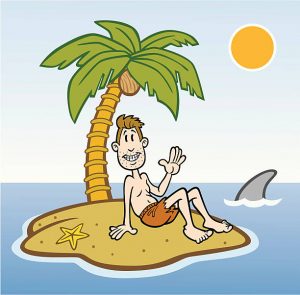A couple of years ago, several of the people organizing the International Marine Conservation Congress let slip in their planning discussions that they played Dungeons and Dragons (D&D). There are many of us of a certain age that remember fondly playing in our youth, some of us have kids who are now getting of an age where we can, in turn, teach them how to play, and some were drawn in by the surge in Youtube and podcast shows like the hugely popular “Critical Role” where literally millions of people turn in to watch a bunch of nerds play Dungeons and Dragons … and have fun.

This led to the idea of playing a game at the conference. After more discussion, perhaps helped by a few drinks, the idea was spawned that perhaps we could make this game marine-themed and educational? Maybe even play this game in front of an audience at the conference? Perhaps even record it and share it online…?!
Read More “Come to the geek side of #scicomm: Marine science education by Dungeons & Dragons” »






 Image via gify.com
Image via gify.com


